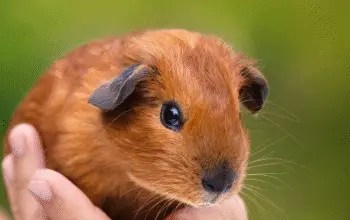Babydoll sheep may look like living stuffed animals, but these tiny sheep are very real—and completely charming. With their fuzzy faces, small size, and sweet personalities, Babydoll Southdown sheep have become favorites among hobby farmers, animal lovers, and even vineyard owners. These little bundles of fluff are not only adorable, but they also offer many surprising benefits. If you’re curious about these wooly wonders, here are 11 fascinating facts about Babydoll sheep that will warm your heart.
1. Babydoll Sheep Are an Ancient Breed

Babydoll sheep come from a very old breed known as the Southdown sheep, which originated in the South Downs of Sussex, England, over 200 years ago. These sheep were developed in the 1700s and were once one of the most popular meat breeds in England. The miniature version we call “Babydoll” today is a smaller type of Southdown that was common in the early 1800s but later fell out of popularity. Thanks to dedicated breeders, the small version has made a big comeback.
2. They’re Incredibly Small and Cute

One of the biggest reasons people love Babydoll sheep is their tiny size. A fully grown Babydoll sheep stands just 18 to 24 inches tall at the shoulder, making them one of the smallest breeds of sheep in the world. Adults weigh around 75 to 125 pounds—small enough to be handled easily, yet sturdy and strong. Their short legs, fluffy bodies, and teddy bear faces give them an irresistibly cute look.
3. Their Smiling Faces Win Hearts Everywhere

Babydoll sheep are known for their sweet and smiling expressions. Their round faces and wide-set eyes give them a permanent look of cheerfulness, which has earned them nicknames like “teddy bear sheep” or “smiley sheep.” Their calm, friendly appearance has made them a popular choice for petting zoos, therapy animals, and even photo shoots.
4. They Produce High-Quality Wool

Despite their small size, Babydoll sheep produce a fine fleece that is prized by hand-spinners and fiber artists. Their wool is short but dense, with a texture that is soft and springy. It typically ranges from 19 to 22 microns, which is considered fine and is suitable for spinning into yarn used in scarves, hats, and baby clothes. The wool comes in natural colors such as creamy white, light brown, and even black.
5. They Make Excellent Weed Eaters

Babydoll sheep are often used as natural lawnmowers. Because of their small size and gentle nature, they are ideal for grazing in orchards, vineyards, and even large gardens. They help control weeds and grass without damaging trees or vines, making them a favorite among organic farmers and vineyard owners. Some winemakers even hire flocks of Babydolls to roam their grapevines and clear unwanted plants.
6. Babydoll Sheep Are Very Gentle

One of the reasons Babydoll sheep are becoming so popular as pets is their calm and gentle personality. They are known for being sweet-tempered, easy to handle, and friendly with humans. They don’t mind being around people and can be trained to follow commands, walk on a lead, or even come when called. Their gentle nature makes them great for families, 4-H programs, and anyone new to raising sheep.
7. They’re Great with Other Animals

Babydoll sheep usually get along well with other farm animals. They are non-aggressive and can share space with goats, alpacas, chickens, and even dogs and cats. Many people keep them alongside horses or in mixed-species barns. As herd animals, Babydoll sheep prefer the company of other sheep, so it’s best to keep at least two so they don’t get lonely or stressed.
8. They Don’t Require Shearing Twice a Year

Unlike some sheep breeds that require frequent shearing, Babydoll sheep usually need to be sheared only once a year, typically in spring. Their fleece grows at a steady rate and doesn’t get overly long or tangled. Shearing not only keeps them cool in warm weather, but it also prevents issues like overheating or wool buildup around the eyes.
9. They’re Surprisingly Hardy

Don’t let their fluffy look fool you—Babydoll sheep are tough and hardy. They can handle a wide range of climates, from cold northern winters to warm southern summers, as long as they have shelter from extreme heat or cold. Their wool offers excellent insulation, and their small size means they don’t need a lot of food or space. They are known to be very low-maintenance, especially compared to other livestock.
10. They Don’t Destroy the Land

Unlike goats, which can be hard on pastureland and even climb trees, Babydoll sheep are gentle grazers. They nibble rather than yank out plants by the roots, which helps protect the grass and soil. Because they are so small and light, they don’t create deep hoof prints or damage the ground. This makes them ideal for sustainable farming and regenerative agriculture practices.
11. They’re Not Just for Farms

Thanks to their small size, friendly nature, and low upkeep, many people are choosing to keep Babydoll sheep in backyards and homesteads rather than on large farms. In areas where zoning laws allow small livestock, Babydoll sheep are becoming popular as lawn pets. Some people even keep them as companions in suburban neighborhoods, provided there’s enough space and proper fencing.
Babydoll sheep are more than just a pretty face—they are smart, gentle, and helpful little animals that bring joy to the lives of their owners. Whether you’re looking for a lovable pet, a wool producer, or a friendly weed eater for your orchard, these pint-sized sheep are a perfect choice. Their smiling faces and easy-going nature make them hard to resist, and their usefulness on the farm or homestead makes them even more valuable. If you’re thinking about adding a Babydoll sheep to your life, be ready to fall in love.



